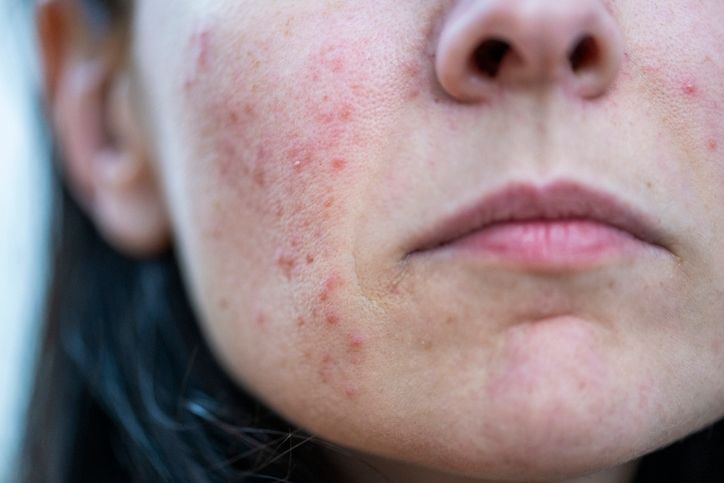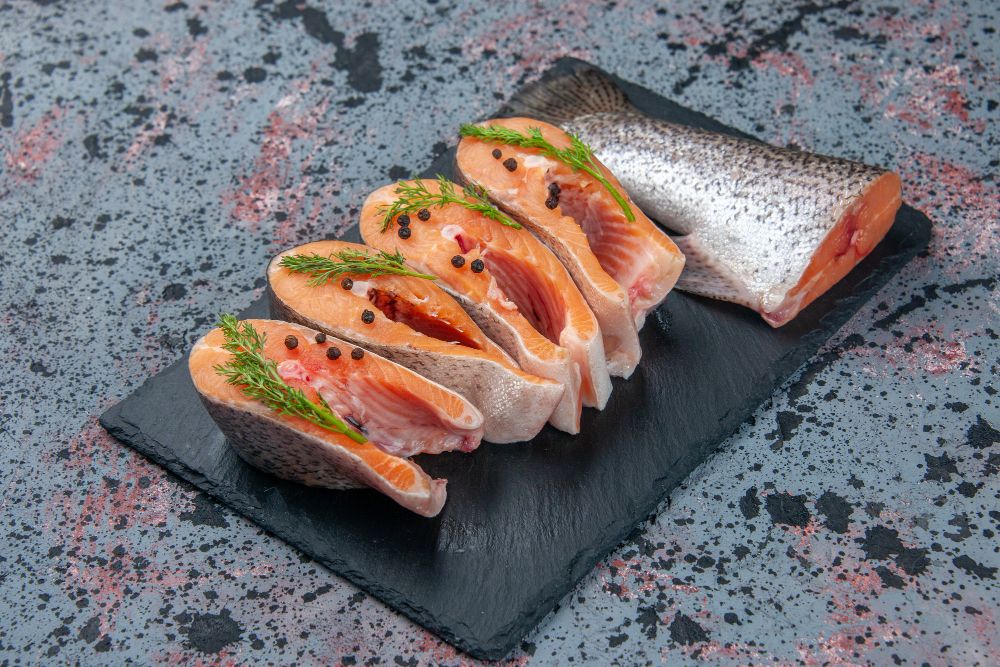

Book Now to Experience
F8 Hair Regrowth Treatment
1 Minute Self-Registration
Date should not be before minimal date
Author: Sophia Man|Updated: 23 July 2024
Many women take pride in having luscious, healthy and sensual hair, which makes hair shedding and baldness a devastating affair. If you’ve noticed more-than-usual shredded hair strands on your pillow and in the shower - don’t be afraid! While it is understandable to be stressed when experiencing hair loss, you can take comfort in knowing that female hair loss is quite common and definitely treatable. Whether you go for topical treatments such as hair growth shampoo or medical treatments such as hair transplants, your health practitioner will most certainly recommend a healthy, nutrient-packed diet to aid your treatment results. Nutrient deficiency is a common contributing factor to hair loss. While nutrients may not be able to cure female hair loss single-handedly, they are vital towards preventing thinning hair, limiting the severity of hair loss, bettering chances of recovery, speeding up treatment results, and maintaining healthy hair growth! Like many modern ladies, you might often eat out and diet unhealthy, which makes the following hair growth-supporting foods must-tries for you!

1
What is Female Pattern Hair Loss?
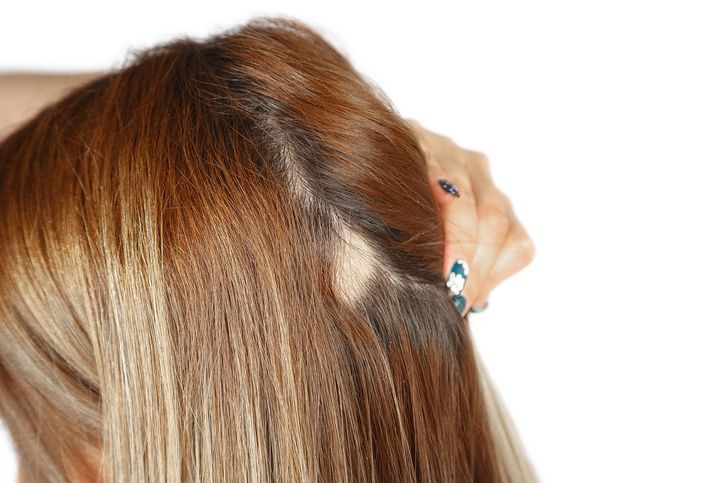
Understanding what is happening in your hair can help you better treat your hair loss.
While not as commonplace as male pattern hair loss, female hair loss is more ordinary than you might think: over 30% of women experience varying degrees of thinning hair. In addition, most hair loss patients begin noticing lower hair density or bald spots after menopause.
Your hair loss most likely starts from the parting of your hair: you will see your parting getting wider gradually, with its shape turning oval. If ignored, you risk your parting turning into crown baldness!
Sometimes, hair loss can start from your hairline or occur in random patches instead of at the parting.
Though named differently, hair loss in women, just like that in men, is caused by unhealthy hair follicles and scalp.
Factors such as diet, stress, pollution and age can affect your hair follicles and scalp’s health, resulting in sebum-clogged pores, poor microcirculation, dehydrated skin tissues and more.
All these symptoms lead to nutritional deficiencies and slow metabolism for your hair follicles and scalp, resulting in slow cellular turnover, giving you slow-growing, brittle hair strands with loose roots.
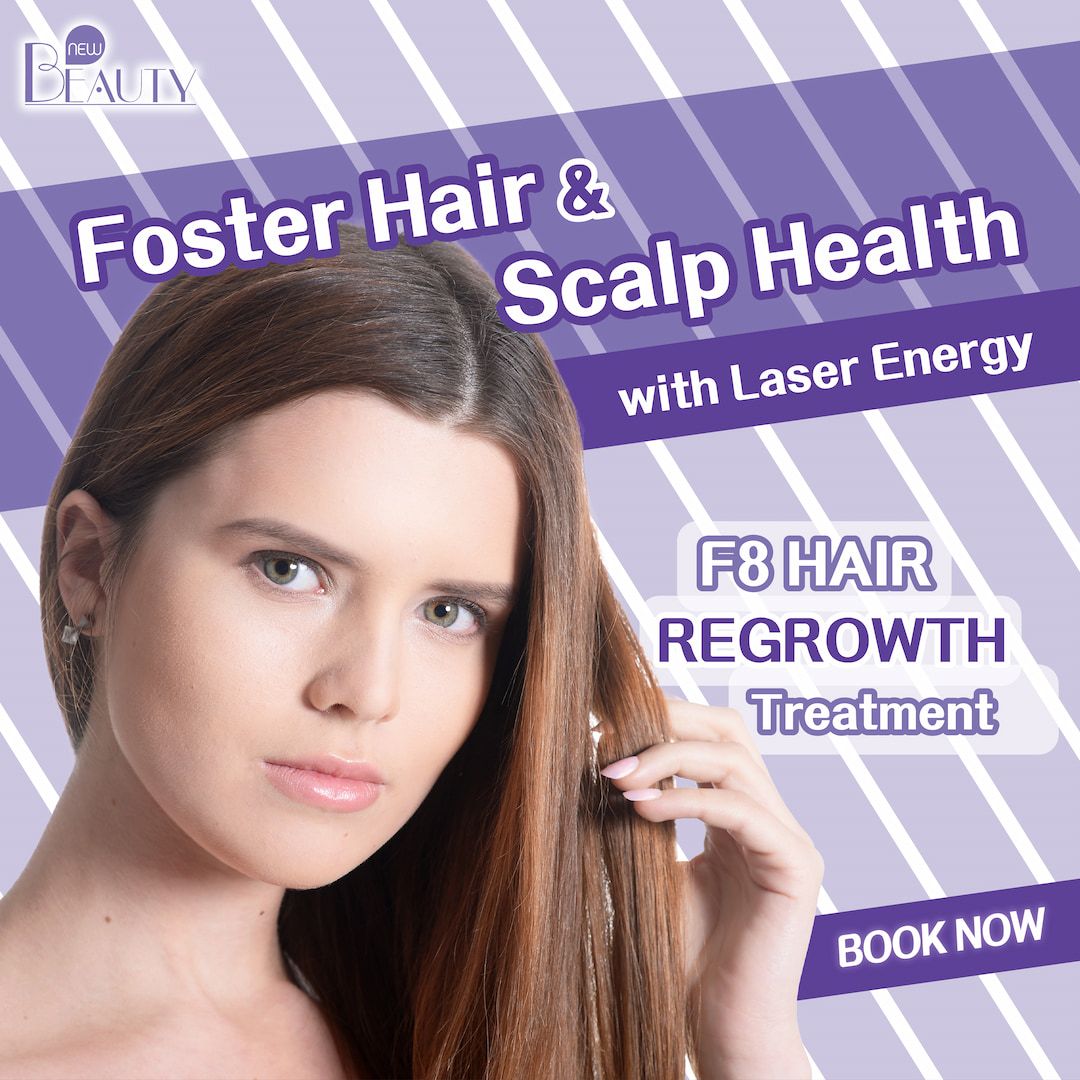

2
Best Nutrients and Natural Foods for Healthy Hair Growth
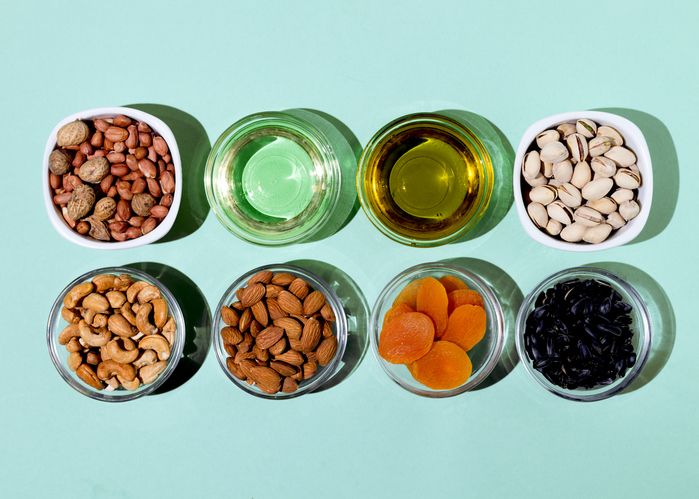
While you can buy the latest, most expensive hair growth supplements that claim to boost hair volume significantly, the truth is that most of these supplements are overpriced and packed with artificial chemical additives.
Most importantly, these hair supplements often contain nutrients you can find in cheap, organic food ingredients.
Why waste your bucks on fancy supplements with unpromised results? Instead, promote hair growth by consuming the following nutrients from natural foods, and build a healthy, hair-nurturing lifestyle, backed by scientific evidence!
Iron
Iron is the most vital nutrient for strong hair growth. An Iron deficiency anaemia often directly corresponds to brittle hair texture, hindered hair growth, and thin hair thickness.
Iron deficiency anaemia means a low level of haemoglobin. Iron helps produce haemoglobin, a protein in your red blood cells which delivers oxygen from your lungs to your entire body.
A haemoglobin deficiency means insufficient oxygen to your organs and cells, resulting in slow cellular turnover, slow metabolism and subpar bodily mechanism performance.
If you lack iron, you might notice symptoms such as constantly feeling tired, weak muscles, skin tone looking washed out, heartbeats and breath getting too fast, and more.
Like other organs, your hair follicles and scalp’s skin cells rely on haemoglobin to get their daily doses of oxygen and nutrients. With an iron deficiency, your hair roots and scalp tissues become too weak to hold onto hair strands and nurture hair growth, which makes your hair stop growing and fall out!
Women are especially susceptible to iron deficiency, as we can experience heavy menstruation. Pregnant women also have to split their iron intake for the fetuses.
You are also more at risk of iron deficiency anaemia if you are a vegetarian, as you lack the most common food source for iron: red meat.
Red meat is the staple of an iron-rich diet. For example, 100 grams of beef, lamb and pork can contain over 3 mg of iron. A rule of thumb: the redder the meat, the more iron-packed it is. Therefore, you should eat internal organs such as livers and kidneys.
However, you shouldn’t binge on red meat and organs. Too much red meat means an excessive cholesterol intake. What’s more, organs are often fatty. The liver, in particular, may also hold toxins from the animal. Overeating red meat for too long can put you at risk of cardiovascular dysfunctions and cancer.
You should aim to consume no more than 500 grams of red meat per week.
Other iron-rich foods include shellfish, beans and nuts, clams, dark chocolate, and spinach.
Importantly, you should keep your iron intake at 14.5 mg daily (8.7 mg if you are in your 50s). Too much iron can overwhelm the liver and also hinder heart performance.
Vitamin C
You know it, and you’ve definitely heard how important it is for your body - vitamin C is hailed as the essential building block for an impenetrable immune system. But do you know it can also help treat hair loss?
Vitamin C is important for your hair’s health, as it helps your body absorb iron.
Aside from hair thinning, severe vitamin C deficiency puts you at risk of scurvy, with symptoms such as bleeding gum, loose teeth, fatigue and easily bruised skin.
Besides not eating enough vitamin C, you may also be at risk of its deficiency if you smoke or drink frequently.
Luckily, severe vitamin C deficiency is hard to come by: even those who eat canned food or takeouts all the time get enough vitamin C to get by.
As an adult woman, you should ideally have 75 mg of vitamin C daily for a gorgeous head of hair and a strong immune system!
Unlike other nutrients such as vitamin D and K, your body cannot synthesize C vitamin, thus making a C vitamin-rich diet all the more important!
The most famous food for replenishing C vitamin is citrus fruits. Just eating an average-size orange can already help you meet your daily dose! Other citruses such as lemon, lime and grapefruits are also nutritious and versatile in cooking!
You may also obtain C vitamin via kiwis, kale, potatoes, berries, peppers, and more.
Lastly, while excessive C-vitamin intake can bring you stomach ache and gas, the daily upper limit is 1000 mg - over 13 oranges! The takeaway: eat away!
Vitamin B
Vitamin deficiencies can really take a toll on hair health.
Vitamin B is another important nutrient to support hair growth.
Vitamin B provides energy to the cells and stimulates cell growth and metabolic activities, which are critical for long, thick, and shiny hair!
There are 8 types of B vitamins, and among all is B7, also known as biotin. Biotin is often made into hair growth supplements, as it is popularly known for breaking down carbs, fat and protein in foods into glucose, fatty acids and amino acids - these three are the building blocks of all cells, which include those that make up hair strands.
Other B vitamins, especially B1 (Thiamine), B2 (Riboflavin) and B3 (Niacin), are also needed to encourage hair growth. This is why instead of taking only biotin or niacin, you should consume multi-B vitamin supplements or vitamin B-rich foods.
Popular vitamin B-packed foods include eggs, carrots, bananas, leafy greens, yoghurt, walnuts, avocado, cauliflower and seeds.
As you can see, vitamin B-rich foods are delicious and abundant. Moreover, your body can remove excess vitamin B - but that does mean you should take more than the recommended daily dosage! Overdose of vitamin B can cause symptoms from headache, irregular moods and numbness to abnormal heart rate and damaged nerves.
Omega fatty acids
Fish oil is such a household name. But do you know why it’s worth all the hype?
Fish oil is, true to its name, fat extracted from fish. The omega-3 fatty acid is the holy grail ingredient within fish oil.
When you eat more than you use, your body turns the unused calories into fat (triglycerides) which, in large amounts, can clog your arteries and induce heart disease and stroke. Omega-3 fatty acids can limit the amount your body stores.
Many users and studies also show omega-3 fatty acids do wonders for hair health: omega-3 fatty acids promote circulation and activate protein synthesis within hair follicles and scalp tissues, contributing to healthy cell growth.
Omega-3 fatty acids can also reduce your hair follicles’ risk of getting inflamed, effectively strengthening your hair roots.
Do the benefits of omega-3 fatty acids sway you? Since your body cannot produce omega-3, you must incorporate fatty fish into your daily meals. Salmon, sardine, trout, tuna, herring, and cod are just some of the fishes rich in omega-3 fatty acids!
If you are a vegetarian or just don’t like seafood, you may substitute fish oil with black sesame, algae oil or seaweed for its high omega-3 fatty acid content.
Overeating fatty fish can have a counteracting effect on your hair. Since fish oil is ultimately fat, overeating can lead to clogged pores on the scalp and oily hair follicles, which not only make your hair look greasy but also block hair growth and impact hair strands’ health.
The daily recommended intake for fish oil is 3000 mg, with omega-3 fatty acids accounting for one-third of the volume.
Protein
Keratin, a shell-like protein, makes up your hair strands’ outermost layers.
Since protein is the building block of all cells, a protein deficiency hinders muscle growth. Your keratin growth also slows down, making your hair spare, thin, limp, dull and frail.
A protein-rich meal is essential for a strong body with thick, alluring hair. Poultry, lean meat, cheese, milk, soybeans and peanut butter are lovely options for boosting your protein intake.
Alternatively, you can also enjoy protein shakes. Just beware of excessive additives such as sugar, sodium, and other artificial flavourings.
Still, with protein’s importance for your body, you mustn’t overdo it. You risk protein poisoning by replacing too many carbs and fat with protein.
With protein poisoning, your body becomes malnourished from lacking the nutrients from fat and carbs. These nutrients can also be essential for hair health, which leads to poor hair growth and quality.
In addition, since your kidneys and livers are responsible for processing your protein intake, protein overdose can strain the organs, causing them to malfunction and break down.
Read More

3
F8 Hair Regrowth Treatment: Nurture Your Hair and Scalp, Get Safe and Definitive Results Non-Invasively!
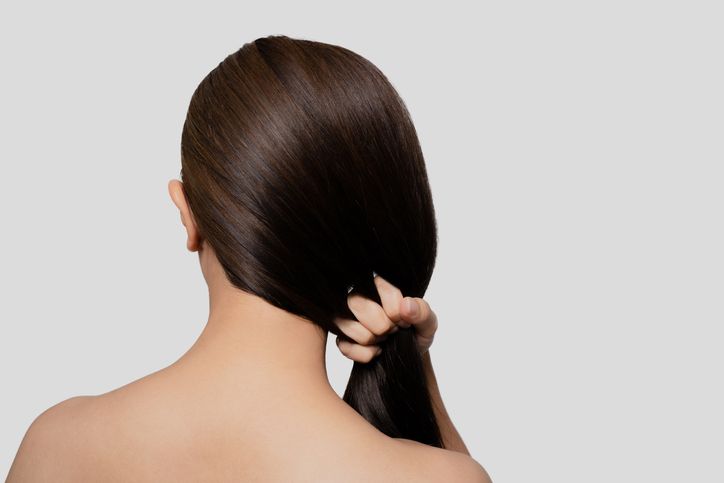
A nutritious diet can boost hair growth. However, nutrients alone may not be able to turn the tide of female hair loss.
You need an active approach: an advanced, tested-and-trusted hair loss treatment that directly activates your hair follicles and scalp, restoring fast hair growth safely and efficiently.
While there are many hair loss treatments, such as hair transplantation and topical serums, they are either invasive and risky, or could be more efficient and effective.
The F8 Hair Regrowth Treatment combines the best of both worlds: This gentle laser hair growth treatment is safe, non-invasive and effective, according to millions of global users’ testimonials!
The F8 gentle laser energy seeps into the scalp tissues to stimulate the scalp, hair follicles and the surrounding capillaries. The strengthened capillaries enhance blood flow, bettering nutrient supply to the roots of hair.
As a result, your hair follicles and scalp are now active, healthy and ready to grow beautiful hair!
After the laser emission, you will enjoy a scalp massage with our medical-grade, hydrating hair growth serum. This serum can restore the natural balance of your scalp’s sebum secretion, giving you the perfect hair-fostering environment.
In the end, you will have a hydrated scalp and nurtured hair follicles, which foster strong, beautiful, healthy new hair growth!
You can regain long-term hair growth as fast as within 3 months. What’s more, this treatment is painless and non-irritating; it also requires no incision or injection. Thus, you will need no time for recovery!
Contact us to experience the F8 Hair Regrowth Treatment!
-> I want to book my free trial: F8 Hair Regrowth Treatment
FAQ
What causes female pattern hair loss?
Female hair loss, much like male pattern hair loss, often occurs to women in their 40s to 50s. Female hair loss is generally due to slowed cellular turnover in the scalp tissues and hair follicles and restricted blood flow around the scalp.
Will hair loss recover naturally?
Though not guaranteed, short-termed or situational hair loss, such as hair shedding due to sudden emotional stress or diet changes, may be reversible once you make the necessary lifestyle changes. However, female pattern baldness is a product of ageing and genetics combined. Therefore, ignoring female pattern baldness is likely to lead to more severe hair loss.
Do hair growth shampoos and serums work?
Hair growth shampoos and serums often contain caffeine or minoxidil, which may stimulate hair follicles for faster hair growth. However, cosmetic and clinical research found mixed results on these ingredients’ effectiveness. Even if, by chance, the rate of hair growth increases, your hair strands will likely remain limp and brittle. Not to mention these topical treatments can take months to show results if there are any.
When will I begin seeing results from the F8 Hair Regrowth Treatment?
The F8 Hair Regrowth Treatment targets the roots of hair directly. Therefore, it gives you efficient results. Treatment results can show up in 3 to 6 months for those with mild hair loss. You will see longer hair growth within 6 to 12 months if you have more severe hair loss.
Is the F8 Hair Regrowth Treatment a surgery?
Other transformative hair growth treatments, such as hair implants, require incisions and needles, which put you at risk of wounds, scars, and post-surgical complications. In contrast, the F8 Hair Regrowth Treatment is entirely non-invasive. The F8 laser energy gently seeps through the scalp tissues to speed up cellular turnover and scalp metabolism. As a result, you will enjoy a healthier scalp and hair follicles and, thus, beautiful and thick hair strands. The F8 Hair Regrowth Treatment can help you achieve long-term, healthy waves growth while remaining wound-free, scar-free and safe.

Book Now to Experience
F8 Hair Regrowth Treatment
1 Minute Self-Registration
Date should not be before minimal date
Recommended Articles
COPYRIGHT© NEW BEAUTY MANAGEMENT LIMITED 2025. ALL RIGHT RESERVED.

